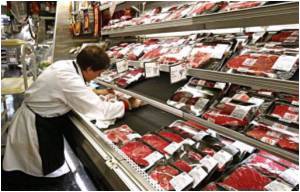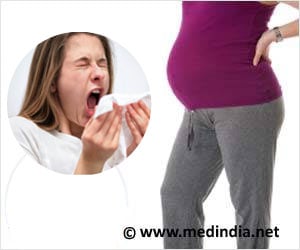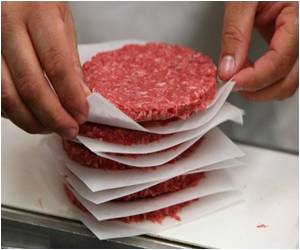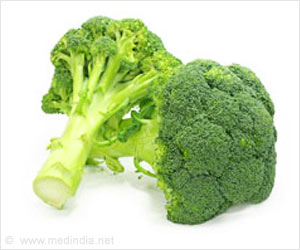British police raided two meat plants in the first such operation searching for the source of horsemeat in kebabs and burgers in the wake of a scandal in Europe over the mislabelling of beef.

The developments came on the eve of a European Union crisis meeting in Brussels to address the scandal, which has raised suspicions of links to organised crime and public fears over health.
In Britain, police and officials from the Food Standards Agency raided a slaughterhouse in northern England and a meat producing factory in Wales, before shutting both sites and seizing all meat there.
The agency said the Peter Boddy slaughterhouse in Todmorden, in the county of West Yorkshire, was believed to have supplied horse carcasses to Farmbox Meats in Aberystwyth, Wales.
"The agency and the police are looking into the circumstances through which meat products, purporting to be beef for kebabs and burgers, were sold when they were in fact horse," the agency said.
Andrew Rhodes, operations director of the FSA, said he ordered an audit of horse producing abbatoirs in Britain when the scandal arose last month "and I was shocked to uncover what appears to be a blatant misleading of consumers."
Advertisement
Separately British supermarket Waitrose pulled frozen beef meatballs from its shelves after tests showed that they may contain traces of pork, despite it not being listed as an ingredient.
Advertisement
In France, retailer Picard said tests had confirmed that horsemeat was present in two lots of frozen "beef" lasagne meals made by the French firm Comigel.
Retailers in Britain, Sweden, France, Switzerland and the Netherlands have been removing Comigel products after the firm alerted Swedish frozen food giant Findus to the presence of horsemeat in its meals last week.
Swiss supermarket giant Coop told AFP Tuesday it had now withdrawn all frozen lasagnes produced by Comigel as a precaution.
Comigel denies any wrongdoing and has said it got its meat from another French firm, Spanghero, which said it was supplied from two abattoirs in Romania who allegedly passed off horsemeat as beef.
But Romanian Prime Minister Victor Ponta on Monday angrily denied his country was to blame.
He said Spanghero did not have a direct contract with Romanian firms and he called on European Union officials to find out where the fraud originated and who are the guilty parties.
Dutch supermarkets PLUS and Boni meanwhile said Tuesday they had withdrawn Primafrost brand frozen lasagne as a precaution because they may contain horsemeat without being marked on the packaging.
Ireland's agriculture minister has called a meeting in Brussels on Wednesday with the EU's health commissioner Tonio Borg and other top officials to discuss action needed at the EU level to resolve the issue.
Borg's spokesman said Tuesday it was too early to require labelling on meat used in processed foods despite the growing uproar.
In Britain, the authorities are worried that horsemeat could contain traces of equine medicines such as phenylbutazone, used to control pain, which are unsuited for human consumption.
The consumption of horsemeat is largely taboo in Britain, unlike in many other parts of Europe where it is sold openly.
Source-AFP









